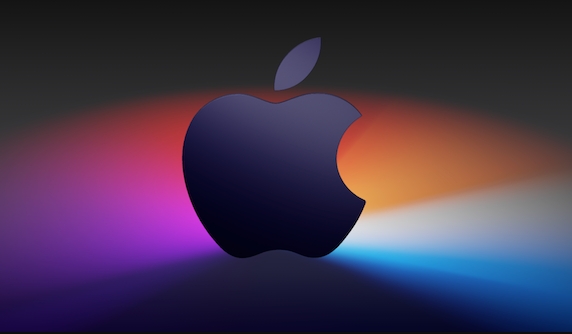How to use Spotlight search effectively on a Mac?
To use Spotlight search on Mac effectively, press Command (⌘) Space bar to activate it instantly; it can launch apps, open files by content or type, perform calculations, convert units, define words, show web results, and access system settings; customize results in System Settings under Siri & Spotlight by selecting categories and excluding folders in Privacy; use pro tips like searching with “kind:pdf,” filtering by date, opening multiple files with Command, revealing files in Finder via Command Option Enter, and clearing recent searches for privacy; Spotlight improves over time by learning your habits, making it a powerful tool for quick, mouse-free navigation.

Spotlight search on Mac is a powerful tool that goes beyond just finding files—it can launch apps, perform calculations, look up definitions, show web results, and more. To use it effectively, you need to know the right shortcuts, settings, and tricks.

Activate Spotlight Quickly
The fastest way to use Spotlight is with the keyboard shortcut. Press Command (⌘) Space bar to instantly open the search box in the center of your screen. This works in any app or desktop view, so you don’t need to switch windows or menus.
If you prefer, you can also click the magnifying glass icon in the top-right corner of the menu bar. But using the keyboard shortcut is much faster once it becomes a habit.

Search Smart: What You Can Do
Spotlight isn’t just for apps and documents. Here’s how to get the most out of it:
- Launch apps: Type the app name (e.g., “Safari,” “Photos”) and press Enter.
- Open files and documents: Search by name, content, or even file type. Spotlight indexes text inside many file types (PDFs, Word docs, text files), so you can find a file even if you only remember a phrase from it.
- Do math and convert units: Type “250 * 12” or “100 USD to EUR” and Spotlight will show the result instantly.
- Check definitions: Type “define serendipity” to see a dictionary definition.
- Get quick facts and web results: Spotlight pulls info from Siri and web sources. Try “weather in Tokyo” or “Eiffel Tower height.”
- Control system settings: Type “bluetooth settings” or “display brightness” to jump directly to related system preferences.
Use arrow keys to navigate results by category (Applications, Documents, Web Searches, etc.), then press Enter to open the selected item.

Customize Spotlight for Better Results
To make Spotlight more effective, tweak its settings:
- Go to Apple menu > System Settings (or System Preferences) > Siri & Spotlight.
- Under Spotlight Search Results, choose which categories appear (e.g., Applications, PDFs, Mail & Messages, Bookmarks).
- If you don’t want certain locations indexed (like external drives or specific folders), go to Privacy in the same panel and add them to exclude.
This helps reduce clutter and speeds up searches by focusing on what matters to you.
You can also adjust whether Spotlight suggests content from iCloud, Mail, or previous searches—useful if you want faster, more private results.
Pro Tips for Power Users
-
Search by file type: Use
kind:in your query. For example, type “kind:pdf budget” to find PDFs with “budget” in the name or content. - Search by date: Try “yesterday” or “last week” to filter recent files.
- Open multiple files at once: Hold Command while selecting files in Spotlight results, then press Enter.
- Reveal in Finder: Press Command Option Enter after selecting a file to open its location in Finder.
- Clear recent searches: If you want privacy, click the “x” next to recent items in the Spotlight window.
Spotlight learns from your habits over time, so the more you use it, the better it gets at showing what you need first.
Basically, mastering Spotlight saves you time navigating folders and menus. With a few keystrokes, you can find almost anything—no mouse required.
The above is the detailed content of How to use Spotlight search effectively on a Mac?. For more information, please follow other related articles on the PHP Chinese website!

Hot AI Tools

Undress AI Tool
Undress images for free

Undresser.AI Undress
AI-powered app for creating realistic nude photos

AI Clothes Remover
Online AI tool for removing clothes from photos.

ArtGPT
AI image generator for creative art from text prompts.

Stock Market GPT
AI powered investment research for smarter decisions

Hot Article

Hot Tools

Notepad++7.3.1
Easy-to-use and free code editor

SublimeText3 Chinese version
Chinese version, very easy to use

Zend Studio 13.0.1
Powerful PHP integrated development environment

Dreamweaver CS6
Visual web development tools

SublimeText3 Mac version
God-level code editing software (SublimeText3)

Hot Topics
 1660
1660
 276
276
 How to turn on the firewall on Mac
Aug 22, 2025 pm 04:01 PM
How to turn on the firewall on Mac
Aug 22, 2025 pm 04:01 PM
OpenSystemSettings(orSystemPreferences)byclickingtheApplemenu,thenselectSystemSettings(Venturaandlater)orSystemPreferences(olderversions).2.OnmacOSVenturaandlater,gotoNetwork>Firewallinthesidebar;onMontereyandearlier,openSecurity&Privacy>Fi
 How to use Quick Look on a Mac?
Aug 22, 2025 pm 05:31 PM
How to use Quick Look on a Mac?
Aug 22, 2025 pm 05:31 PM
TouseQuickLookonMac,selectafileinFinder,onthedesktop,orinadialogbox,thenpresstheSpacebartoinstantlypreviewitscontents;pressSpaceagaintoclose.1.QuickLooksupportsdocuments(PDF,Word,Excel,etc.),images(JPEG,PNG,HEIC,RAW),audio(MP3,WAV),video(MP4,MOV),ZIP
 How to connect a Mac to Wi-Fi
Sep 03, 2025 am 08:41 AM
How to connect a Mac to Wi-Fi
Sep 03, 2025 am 08:41 AM
IfyourMaccan'tconnecttoWi-Fi,trythesesteps:1.UsetheWi-Fimenutojoinanetwork.2.RestartWi-Fiorresetnetworksettings.3.ManuallyconfiguretheconnectioninSystemSettings.4.RenewtheDHCPleasetorefreshtheIPaddress.
 Mac scrolls in the opposite direction with the mouse wheel
Aug 21, 2025 pm 08:09 PM
Mac scrolls in the opposite direction with the mouse wheel
Aug 21, 2025 pm 08:09 PM
On Apple computers, the direction of the Mac mouse wheel is different from that of Windows, and it usually shows the effect of reverse scrolling. The solution is as follows: First, click the apple icon in the upper left corner of the screen, and then select "System Preferences" from the pop-up menu. Next, in the System Preferences window that appears, find and click the "Mouse" option. Finally, in the Mouse settings interface, cancel the check box before "Scrolling Direction: Natural". After completing this operation, the direction of the mouse scrolling becomes consistent with Windows.
 How to use Spotlight search effectively on a Mac?
Aug 20, 2025 am 02:17 AM
How to use Spotlight search effectively on a Mac?
Aug 20, 2025 am 02:17 AM
TouseSpotlightsearchonMaceffectively,pressCommand(⌘) Spacebartoactivateitinstantly;itcanlaunchapps,openfilesbycontentortype,performcalculations,convertunits,definewords,showwebresults,andaccesssystemsettings;customizeresultsinSystemSettingsunderSiri&
 How to eject a disk from a Mac?
Sep 01, 2025 am 04:57 AM
How to eject a disk from a Mac?
Sep 01, 2025 am 04:57 AM
TosafelyejectadiskfromyourMac,clicktheEjectbutton(⏏)nexttothedriveicononthedesktopordragtheicontotheTrash,whichturnsintoanEjectsymbol.2.Alternatively,openaFinderwindow,gototheFilemenuinthemenubar,andselectEject[DriveName]tosendasafe-removalsignal.3.I
 How to combine multiple PDFs into one on a Mac using Preview?
Aug 27, 2025 am 09:12 AM
How to combine multiple PDFs into one on a Mac using Preview?
Aug 27, 2025 am 09:12 AM
To merge multiple PDFs into one file, use Preview on Mac to complete it, without third-party software. The specific steps are as follows: 1. Use Preview to open the PDF files that need to be merged, and you can open them one by right-clicking "Open Method>Preview"; 2. Make sure that the thumbnail sidebar of the main document is visible. If not, click "View>Thumbnail" in the menu bar or press Command Shift T to open it; 3. Open other PDF files, click and drag the page in its thumbnail sidebar to adjust the insertion position as needed; 4. You can reorder the page order by dragging the thumbnail, or press the Delete key to delete unnecessary pages; 5. After completion
 How to find the serial number on your Mac
Sep 03, 2025 am 03:07 AM
How to find the serial number on your Mac
Sep 03, 2025 am 03:07 AM
TofindyourMac'sserialnumber,trythesesteps:1.ClicktheApplelogo>AboutThisMac.2.OpenSystemInformationinUtilities.3.ChecktheundersideofyourMacBook.4.UseTerminalwiththecommandsystem_profilerSPHardwareDataType|grep"SerialNumber".





